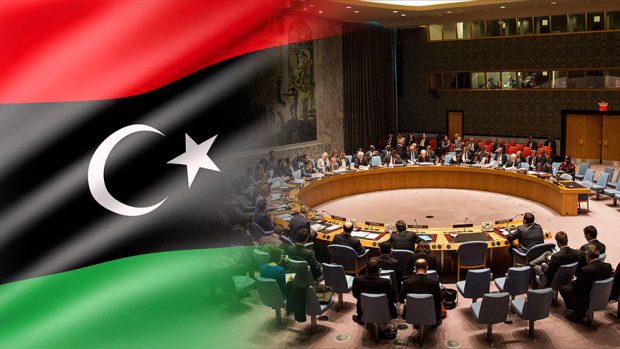UN Security Council extends sanctions on illicit oil exports from Libya

The U.N. Security Council has extended sanctions on illegal oil exports from Libya to cover refined petroleum products as well, in a bid to stem rampant smuggling of subsidized fuel by sea, according to Reuters.
Imported fuel that is priced lower for the domestic market is commonly smuggled by ship from western Libya to Malta, Italy and Turkey, and by land to Tunisia, according to U.N. investigators who earlier this month recommended an extension of the sanctions. Entrenched and powerful smuggling networks have been trading fuel for years, and it is unclear to what extent the resolution can be enforced, Reuters reported.
The new resolution, approved late on Thursday, is designed to make explicit that fuel smuggling is illegal, so that smuggling vessels “can be identified, blacklisted, and prevented from disembarking their cargo,” said a senior Western diplomat as cited by Reuters.
It expands on a 2014 resolution banning illicit crude oil exports from Libya, authorizing the inspection of suspect ships, and calling on member states to take necessary measures to block attempted exports. Those measures “shall apply with respect to vessels loading, transporting, or discharging petroleum, including crude oil and refined petroleum products, illicitly exported or attempted to be exported from Libya,” the new resolution states, Reuters indicated.
Libya is a major oil producer and exporter, but it has limited refining capacity.
Imported refined products are heavily subsidized, with fuel subsidies estimated to represent more than 10 percent of Libya’s gross domestic product (GDP). Smugglers can make vast profits by re-exporting oil products. Fuel smuggling is concentrated around the western towns of Zawiya and Zuwara, and across Libya’s western land border with Tunisia.
Both the Zawiya branch of Libya’s Petroleum Facilities Guard (PFG) and the local coastguard have been accused of involvement in fuel smuggling, which according to the U.N. investigators overlaps with lucrative smuggling of migrants from Libya to Italy, Reuters added.
In a report to the Security Council earlier this month, the investigators said they continued to observe “vessels showing suspicious navigational patterns” off Zuwara. They also cited an attempt to illicitly export 11,500 metric tons of heavy fuel oil from eastern Libya to Malta in February, according to Reuters.
U.N. resolutions recognized the National Oil Corporation (NOC) in Tripoli as the sole legitimate exporter of oil. They have been used to block attempts by factions in eastern Libya to export crude through a parallel National Oil Corporation based in Benghazi. The Western diplomat said that Thursday’s resolution was not expected to halt smuggling and that its application would depend on how the U.N.-backed government in Tripoli, which requested the reference to refined products, chose to use it, Reuters indicated.
“The only thing that will stop smuggling is the removal of the subsidies,” he said, added Reuters.
How to submit an Op-Ed: Libyan Express accepts opinion articles on a wide range of topics. Submissions may be sent to oped@libyanexpress.com. Please include ‘Op-Ed’ in the subject line.
- Iran seeks diplomatic thaw with Morocco following years of tension - November 18, 2024
- National reconciliation forum begins in Benghazi - November 18, 2024
- Libya faces crucial Nations Cup qualifier against Benin - November 18, 2024


